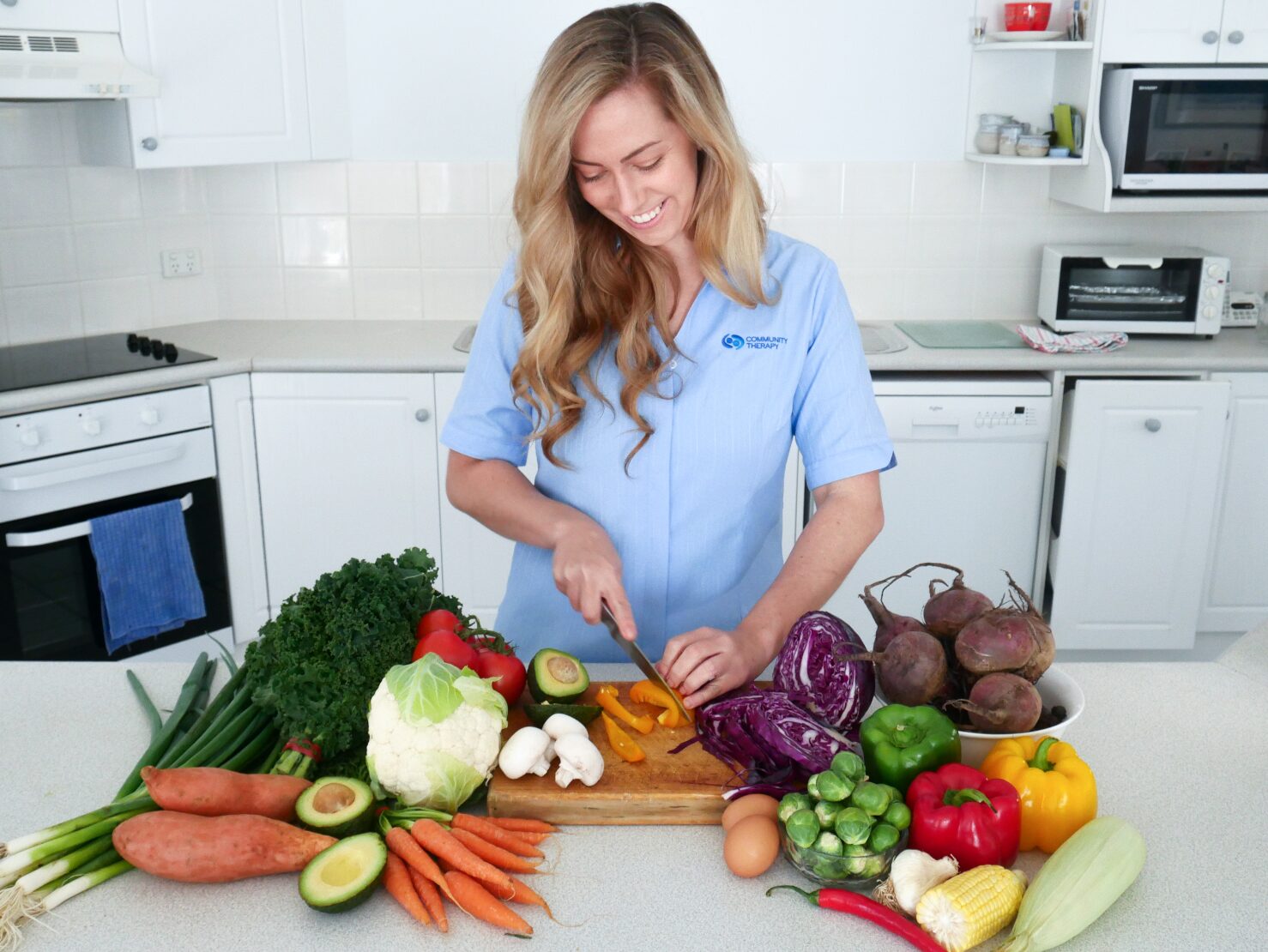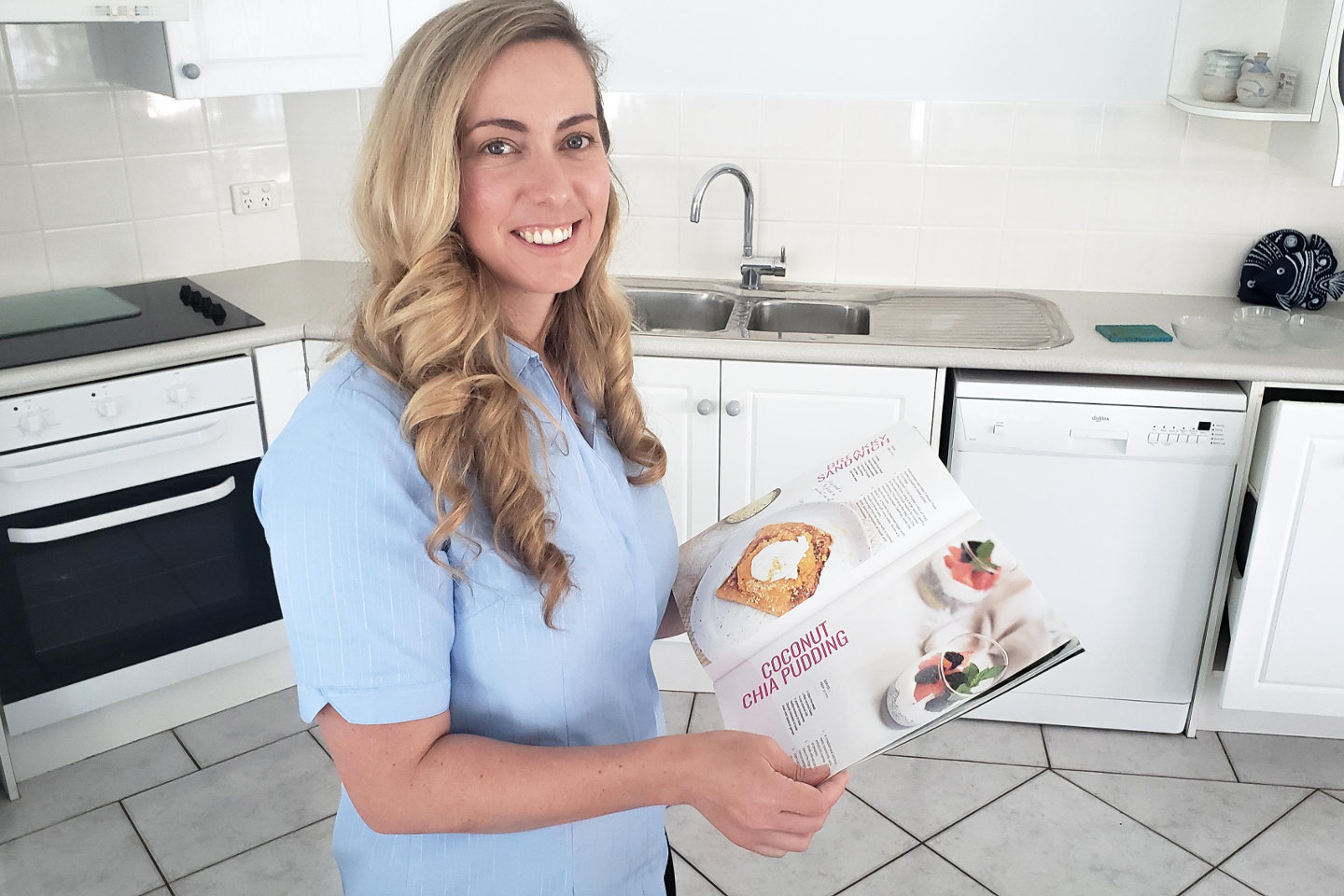Dietitian Services
Community Therapy provides mobile Dietitian services to people living with disabilities and older adults in the comfort of their home. We partner with home care providers, NDIS providers and residential aged care facilities.
We are NDIS registered providers and were certified by SAI Global.
Community Therapy’s Dietitian services are mobile and available throughout Lake Macquarie, Newcastle, Maitland/Hunter, Port Stephens & Central Coast.

Home Visiting Dietitians
What Our Dietitians Do
Community Therapy Dietitians are registered with Dietitians Australia and we are a NDIS registered provider.
Our clinicians hold their own public and professional indemnity insurance, possess current criminal record checks, working with children checks and NDIS worker screening checks.
Our Dietitians work with clients to provide evidence-based nutritional advice for healthy eating to help improve people’s quality of life and manage their healthcare conditions.
Who should see an Accredited Practicing Dietitian?
At Community Therapy we believe Dietitians are for everyone. In addition to providing evidence-based nutritional advice for healthy eating, APDs help treat a wide range of conditions including diabetes, heart disease, cancers, gastrointestinal diseases, food allergies, food intolerance, disordered eating as well as overweight and obesity.
Our Dietitians work primarily with NDIS participants and Aged-Care clients to provide high-quality services.
Our experienced Dietitians know there are many ways for people to have a healthy diet. We understand that there is no one-size-fits-all approach when it comes to diet and nutrition.
We know what works for one person may be different to what works for another, and we work with you at an individual level to achieve your needs, goals and lifestyle.
Who Can Access Our Services
We see our clients in their home or the property they’re living in. We can see clients in all types of properties and living arrangements, including group homes and residential aged care facilities. We partner with many home care providers, NDIS registered providers and aged care facilities to look after the Dietitian care needs of their consumers, participants and residents.
Our team are experienced with working with people living with all types of disabilities. It is part of our recruitment process to hire clinicians with experience and passion for their role.
Our team love working with people to help them move towards the meaningful goals that they have set and would like to achieve.

How Dietetics Can Be Measurable
Our Dietitians will always utilise outcome measures to ensure that they know what someone’s baseline, or starting point, is. This is critical when it comes to measuring change over time and thus demonstrating improvement.
Using outcome measures helps clients to:
- Track progress toward their individual goals
- Identify gaps in knowledge and/or practical skills
- Communicate with informal, community and mainstream supports
Our Dietitians will use outcome measures that are specific to the person that they are supporting. This is because there are outcome measures that are more suitable to use for older adults and others that can be more suitable for specific disabilities.








